Are you looking for the perfect garage flooring? Here are five of the best materials to use on the floor of your garage this year!
Are you one of the 25 percent of homeowners embarrassed to leave their garage doors open? If it’s because the floor is stained, cracked, or just plain ugly, there’s an easy solution to that!
Garage flooring comes in lots of options with the choice that works for you depends in part on your budget and how you’ll use the garage. If you work on your car or do other projects, you need a floor that can handle chemicals, grease, and drops with ease. If you just want to make it look more attractive, your flooring choice needs to be able to stand up to your car driving across it and be easy to apply.
And anything you put on the floor needs to provide enough traction to keep you safe as you walk across it to carry the groceries into the house.
Let’s take a look at some of the best and most common materials used for garage floors today. It’s a garage upgrade that will make you want to show off the garage as much as a new kitchen.
1. Epoxy Coating
Not to be confused with paints that have added epoxy, a garage floor epoxy coating is a two-part epoxy that creates a plastic-like coating over the concrete slab. It’s strong and durable and comes in a ton of color options so you can have your favorite shade.
Applying the coating involves several steps, starting with getting the floor clean and patching holes or cracks. The surface is then sealed with a primer. The base product is mixed with a hardener right before applying and you’ll have a short timeframe to get it rolled on.
You can add color chips into the mix to give you a textured look. Sealing it with a clear coat will help it last longer and make it easier to clean up spills.
2. Concrete or Floor Paint
If you want a quick and inexpensive option, paint can be a good way to go. You can try using regular old latex paint if you like, but know that it is going to require regular touch-ups to keep it looking nice.
The better option is to look for concrete, floor, or epoxy paint as they will be specially made to handle floor traffic. It’s worth noting that paint labeled as epoxy will have special additives but isn’t technically an epoxy.
Garage floor paint is a super DIY-friendly choice since it is easy to apply and clean up with a water-based version. You can get it in any color you like, and while it’s less durable, it’s easy on the budget.
The key with any paint job is proper preparation, including filling any holes and cracks and cleaning the floor well. Start with a coat of primer and consider adding a clear coat or sealer as the last step.
Paint is a good option if your concrete slab is in good shape, and you want to add some color or a design. Whatever paint you choose, make sure you get one that comes with some texture or a non-slip finish for safety.
3. Polyurea Coating
One of the newer garage floor coating options on the market, polyurea provides similar protection as epoxy but with a faster cure time so it can be installed in one day.
The material is flexible, which gives it high abrasion resistance to keep its glossy finish better. It can handle the wide range of temperatures a garage is subject to and has high UV stability so it won’t yellow over time.
It can be more expensive, but that’s mostly because it’s not a good option for a DIY project. You’ll want to look for a good company to install it for you.
4. Tiles
For a garage, we aren’t talking about the kind of tile you would put in your kitchen or even on the patio. Garage floor tiles come in rubber, plastic, and carpet options and make for an easy DIY project. Tiles have the advantage of being easily replaced should one become damaged.
Rubber tiles are tough and resist chemicals and spills. The material is comfy to stand on when you’re working in the garage, and the tiles come in lots of colors and patterns.
Plastic titles provide a strong and stable base to your floor. They can handle heavy weights, including pressure points from a motorcycle kickstand or a tire jack. They’re easy to clean and don’t expand or contract with temperature changes.
Carpet tiles for the garage are usually made of special polymers that resist staining from oil and can be power washed. They aren’t appropriate for a garage that will see heavy-duty use, but they work well for normal to light traffic. Installing is easy as they come in either interlocking tiles or with adhesive backs.
5. Vinyl Flooring
If you don’t have a lot of traffic through your garage, vinyl flooring can be a good choice. You have the option to install it as adhesive tile or roll-out flooring. It comes in lots of colors and requires very little upkeep.
Sheet flooring is made extra thick and tough for a garage floor. It comes textured for traction, resists oils and other chemicals, and is easy to install. However, it isn’t as easy to repair as tiles should it become damaged.
Vinyl tiles are usually installed with peel-and-stick adhesive, which allows you to easily remove and replace a single tile. You can also create custom patterns with them like a checkerboard.
More Than Garage Flooring
Regardless of which type of garage flooring you choose, upgrading the floor makes your garage stand out from the crowd. Any of the garage floor ideas presented here can protect your concrete and make your garage a cooler and safer space to hang out in.
Need help with getting your garage looking great? Contact us to talk with one of our team of experts. We can help you with any of your garage door and storage questions.

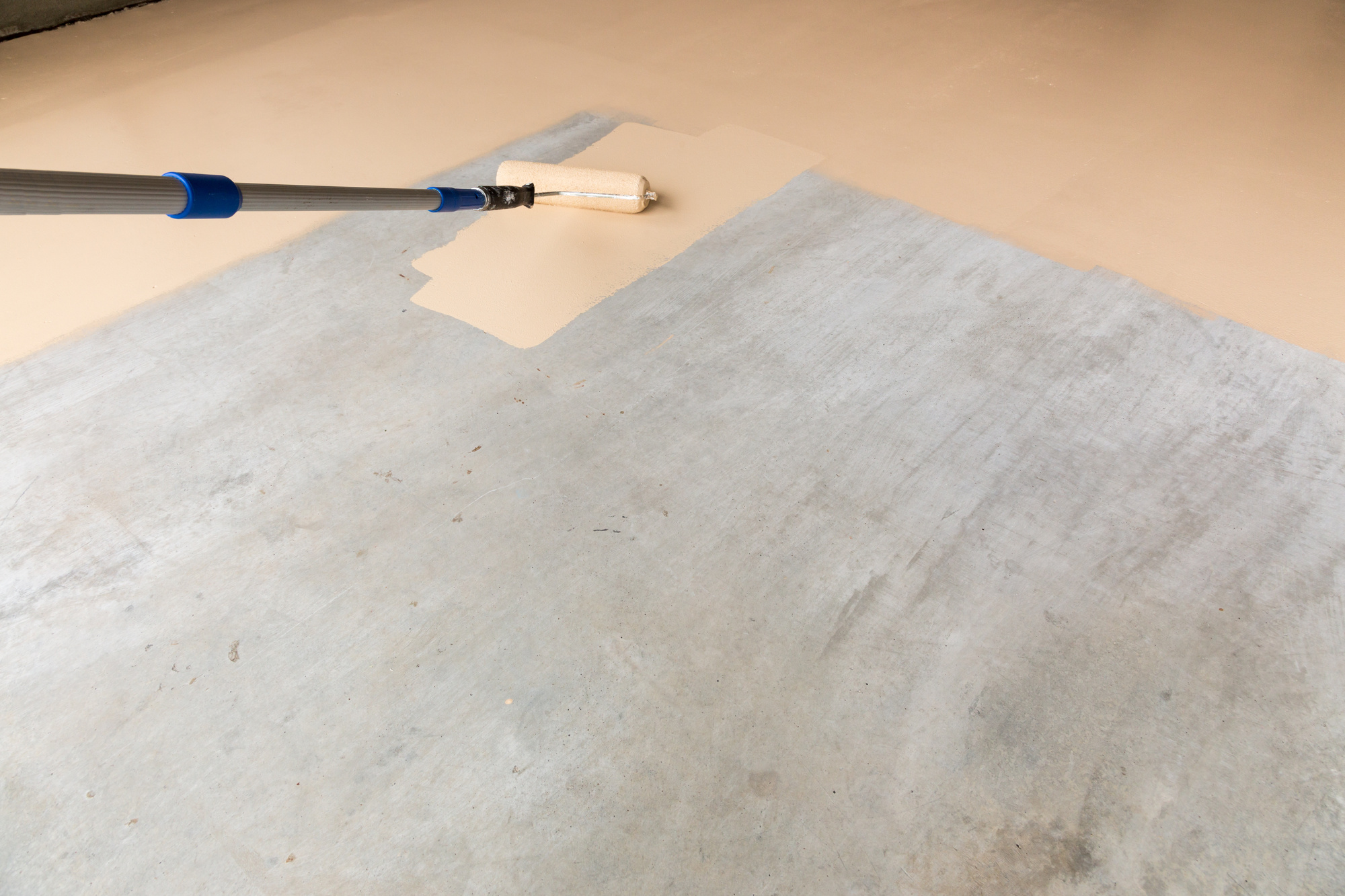
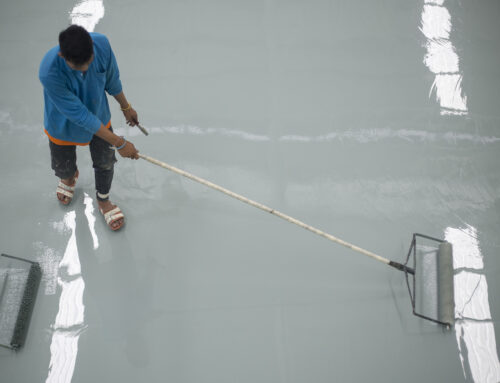
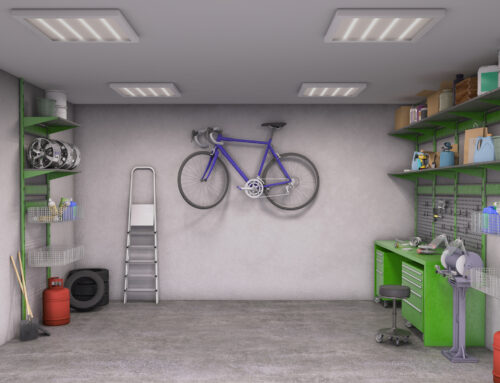
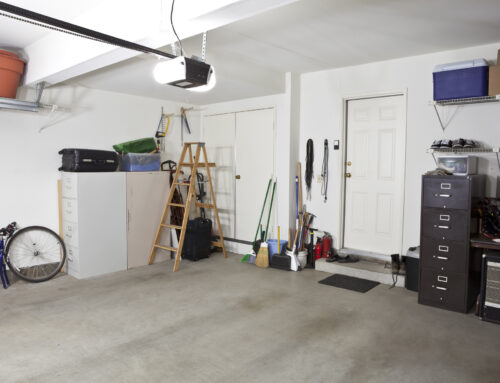
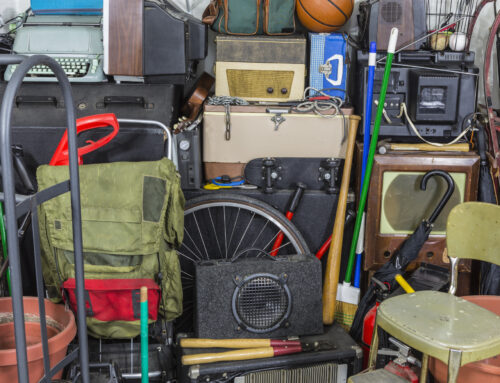
Leave A Comment